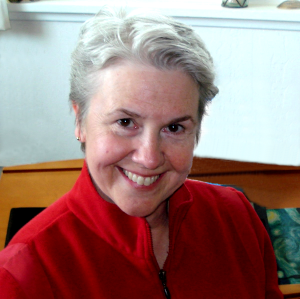Let me introduce you to my book, That We May All (Finally!) Be One — Covenant, Hospitality, and the Expanding Identity of the United Church of Christ.
 Let me introduce you to my book. That We May All (Finally!) Be One is a book about how we are organized and constituted as the United Church of Christ. It’s also about hospitality and covenant, two themes that keep turning up in the life of the United Church of Christ. These themes hold the core of our identity and provide our path for faithful discipleship.
Let me introduce you to my book. That We May All (Finally!) Be One is a book about how we are organized and constituted as the United Church of Christ. It’s also about hospitality and covenant, two themes that keep turning up in the life of the United Church of Christ. These themes hold the core of our identity and provide our path for faithful discipleship.
Who are we in the UCC? With our diverse cultures and histories, with our organizational autonomy and individual freedom of belief, our UCC identity is complex. Sometimes the pronoun “we” seems too puny to handle us. The varied voices of the UCC can put a strain on the power of the first person plural pronoun to adequately represent (all of) “us.” Who is “we” in the UCC? Hospitality is all about expanding the definition of “we” to embrace strangers, enemies, those “we” have not looked for, those “we” have not wanted around, those who are alien and “other,” those who are “them” vis a vis “us.” The ethic of hospitality pushes us all and always to reform, restate, and celebrate the dimensions of “we,” and to be gracious and compassionate to one another in our common pursuit of the radical and redemptive call to follow Jesus.
Because we came into being as a uniting church—bringing together differences in belief and culture— hospitality is in our genetic makeup, and we have cultivated our bent for it. Covenant remains more problematic for us and is frequently outdone by autonomy in tests of strength and inclination.
The understanding that the church belongs to Jesus—not the other way around—is foundational to our grasp of covenant. God calls us into covenant, Christ calls us into the church. The initiative comes from beyond us. We do not set the terms of this enterprise. Not us as individuals, nor as any particular body within the church. Being in covenant means being committed to each other just as God is committed to us. It’s a commitment that is neither required nor customary, that can verge on the unreasonable, that is not easily shed, but embeds in the heart. In covenant we risk being transformed, being sent from the familiar to face the appallingly, and the appealing, different. Transformation requires the courage to traverse vast and intimidating terrain and wind up at “beyond” for the sake of becoming who we are called to be.
Our unity as the United Church of Christ is not always apparent, because it is not unanimity. We seek a unity where we are neither homogenized, standardized, or reduced to lowest terms. We pursue a unity that holds dear all of our independent voices, welcoming our various attitudes and styles as absolutely necessary to the full spectrum of the faith.
Throughout the book you will find examples and comments from many voices, as well as stories—both biblical and personal. You will be invited to contribute your own examples, comments, and stories along the way, because our different stories, heard and told in an atmosphere of hospitality, can strengthen our covenant and unite us. Please add your voice to the conversation.
Mary Susan Gast